Free Range? Four Ways to Manage your Small Flock
Back to blog
For people new to chicken keeping, deciding how they will manage their flock---free range or confined--- can be pretty daunting. Part of the problem is that there isn't really one BEST way to keep a flock. A lot will depend on your own situation.
For instance, my chickens free range in the true sense. That is, they literally have no fences to keep them confined anywhere, so they are out ranging all day long on our nearest acres. We can do this because we're lucky enough that we don't have any close neighbors. There is no one for our hens to bother, unfettered as they are. They won't be getting into a neighbor's yard, won't be pooping on a neighbor's walk or porch, won't be scratching in a neighbor's garden. At night they retire to the coop, and I lock the door when they've gone to bed. In the morning, it's opened up again.

We can do this true free ranging by virtue of our location, and the amount of space we have... as well as the fact that I work from home, so I'm almost always here to make sure everything is okay. Our birds spend their days hunting, scratching, grazing and foraging for bugs. When it gets cold, they huddle together or may choose to stay in the coop. When it's hot, they take shade under our old locust tree with a view of our little holler.
But that's not the only way to manage your small flock. The second way to range your hens is confined ranging. Most people manage this way. If your yard or run is fenced, your birds are enjoying confined range. With fences or enclosures, your flock can't wander willy-nilly into a neighbor's property, or into the road and traffic. Presuming the yard is large enough for your flock to have access to green pasture, confined ranging often works out to be much the same thing as fenceless ranging, so far as the birds are concerned. The birds themselves don't get to define their territory like they do without fences, but they do have a large outdoor territory that they can explore freely during the day. In some cases, chicken people will use mobile "tractor style" coops that are moved to fresh pasture every day. Thus, the birds are always on fresh range, and are also always safely confined. This is a truly ingenious method of flock management, especially for urban and suburban chicken keepers with limited space and/or close neighbors.

The third way to range your hens is part time ranging. This is a great way to operate in some situations. It may be necessary to supervise ranging time, for instance if your neighborhood has many stray dogs, or there is a danger of other predators. Or, if you're not home to supervise during the day, your family may decide to let the hens out only in the evenings or on weekends when someone is around, in case there is any trouble. Part time ranging is very popular, too.

Some urban and suburban keepers don't range their birds at all, but instead have full-time confinement. This is probably less common--or at least we hear about it less often! Full time confinement occurs when a flock has access to the outdoors, but not to green pasture, not even on a part time basis. For people who keep pet chickens confined, these birds are usually still quite pampered. They probably get fruits and veggies as treats, mealworms, or sunflower seeds. Plus, the confined space will be roomy presuming they observe space recommendations. The advantage of not ranging at all is that, if your coop and run are secure, there is no danger of predators. There is always some danger of predators with other methods. The disadvantage, though, is that there will be a lot more cleaning involved, and birds will be more prone to boredom and behavior issues like pecking, egg eating and the like. Illnesses and infestations can also spread more quickly through the confined flock. Plus, it may be a bit more expensive, since the birds will have no ability to supplement their diet by foraging.
As you probably know, even full time confinement is WAY better than factory farm "free ranging." This needs to be mentioned here, although no one in their right minds would count it as one of the "Four Ways to Manage your Small Flock." Free ranging in factory farm terms is not free ranging at all, in any objective sense. There is no free ranging about it. In fact, the "free range" label has become just one of those doublespeak terms co-opted by big agro in an effort to confuse or delude you about how your food is produced. Their hope is that when you read that your eggs are produced by free range hens, it's natural for you to picture true free ranging, confined ranging or even full time confinement with the type of space-per-chicken provided to backyard flocks. Instead, what you really should picture is this:
Factory Farm Free Range
"Free ranging" in factory farm terms is just a vast warehouse filled to capacity with chickens. Somewhere there is likely a door to a small concrete pad outside where they can "range" if they happen to be near the door. It's unlikely there is any grass or pasture available, and they certainly don't have treats of fruits and veggies, meal worms and sunflower seeds like backyard chickens do. Nonetheless, big agro can legally call that sort of arrangement "free range," in the hopes you won't know any better. (Way to institutionalize dishonesty, Big Agro!)
For your small backyard flock, the bottom line is this: the more greens and bugs they can supplement their diet with, the better... whether they are truly free range chickens or whether you are bringing in treats for a pampered flock that must be fully confined. You've heard it from us before: chickens with access to pasture lay healthier eggs. Studies show they have 1/3 less cholesterol, 1/4 less saturated fat, 2/3 more vitamin A, 2 times more omega-3 fatty acids, 3 times more vitamin E, and 7 times more beta carotene than the eggs of chickens without access to pasture. They are also healthier in other ways; for instance they are much less likely to spread food-borne illnesses or contain other things harmful to our health.
So, how do you range your hens... true free ranging, confined ranging, part time ranging or full time confinement? Did you start out imagining you would care for your flock one way, and end up doing it another? Please share your thoughts in the comments.
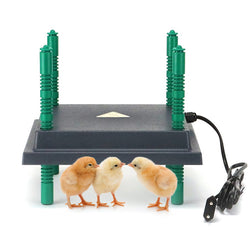
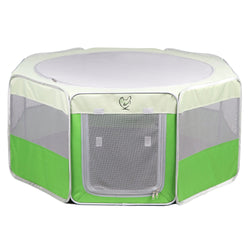
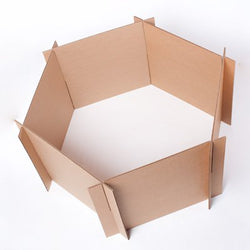
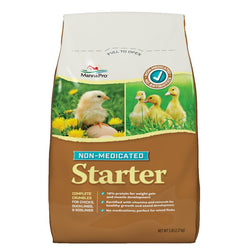
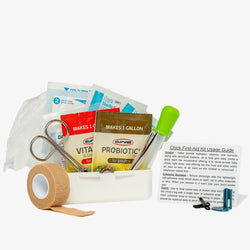
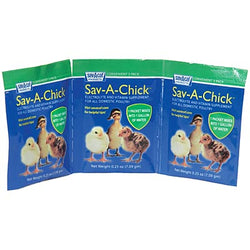
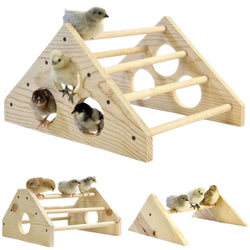
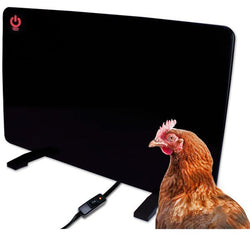

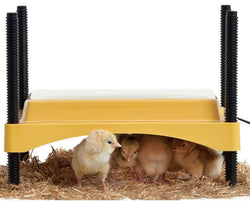
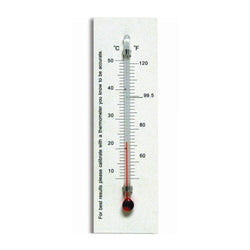
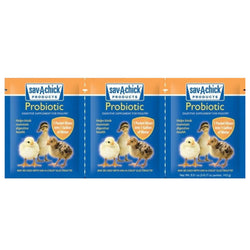
1 comment
I am new to backyard chicken keeping. In Sept of 2023 I received my two day old chicks in the mail. For the first few weeks I had them in a large bin with an adjustable radiant heat panel. I realized that was not going to work because of the dust, so we fashioned a brooder out of a portable dog kennel and took care of them in our garage. I didn’t realize how fast they would grow, but when Nov arrived, I realized it was time to move them outside. My husband built my babies a sanctuary at the side of our house using chain link fencing and one in square hardware cloth as the roof canopy. My babies are protected from the raccoons, possums, hawks and owls prevalent in our neighborhood. Within their sanctuary is their coop, to which I lock them in at dusk. I was so amazed at how they instinctively knew to get in their little house. I had visions of me chasing them around inside their sanctuary to get them in their coop or bribing them with treats, but that never happened. My babies are living their lives out confined and protected in a 10×20’ area. I wish I could let them free range in our backyard, but due to being in a neighborhood with strict restrictions, coupled with the wildlife, I am doing my best to give them a wonderful life in their sanctuary. I enjoy my time with them, each having their own sweet personalities. I do spoil them with fresh veggies, herbs, and treats. I have wanted chickens all my life. I retired in Jan of this year, so I devote much of my time to them. Can’t wait for warmer days and to get my garden ready for them. I confess that I truly love my babies. I believe they know their names and are happy to see me as they actually fly to the gate when I round the corner. They are the most lovable girls and have brought tears to my eyes when they ride on my shoulder or sit in my lap. This past Valentine Day little Pearl gave me her first egg. What a gift they are to me!